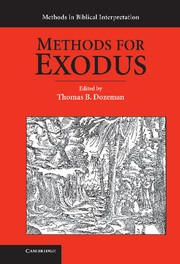Book contents
3 - Source and Redaction Criticism
Published online by Cambridge University Press: 05 June 2012
Summary
Source and redaction criticism are two related methodologies that come under the broader umbrella of the historical critical approach, which seeks to interpret texts within their original historical contexts. The aim of source and redaction criticism is to discern the history of the literary composition of the text. They seek to explore the diachronic dimensions of the text by identifying the literary sources or layers of which the text is composed, their relative chronology, and how they have been brought together and edited over time to eventually form the text as we now have it. Source criticism as such focuses on identifying the earlier written sources of which the present text is comprised, and, if possible, discerning the date and original historical context of each, and to interpret them in relation to these. Redaction criticism focuses on the stages and processes, and something of the intent, whereby these written sources were combined with each other and/or redacted (or edited) to give the final form of the text. As such these methods are interrelated: source criticism takes the text apart into its earlier written components; redaction criticism puts the text back together again and shows the rationale behind each of the stages identified.
THE METHODOLOGY OF SOURCE CRITICISM
Source criticism grew out of the study of Pentateuch, which, especially from the nineteenth century onward, was recognized not as the work of one author but as a composite text, made up of several written sources.
Information
- Type
- Chapter
- Information
- Methods for Exodus , pp. 95 - 130Publisher: Cambridge University PressPrint publication year: 2010
